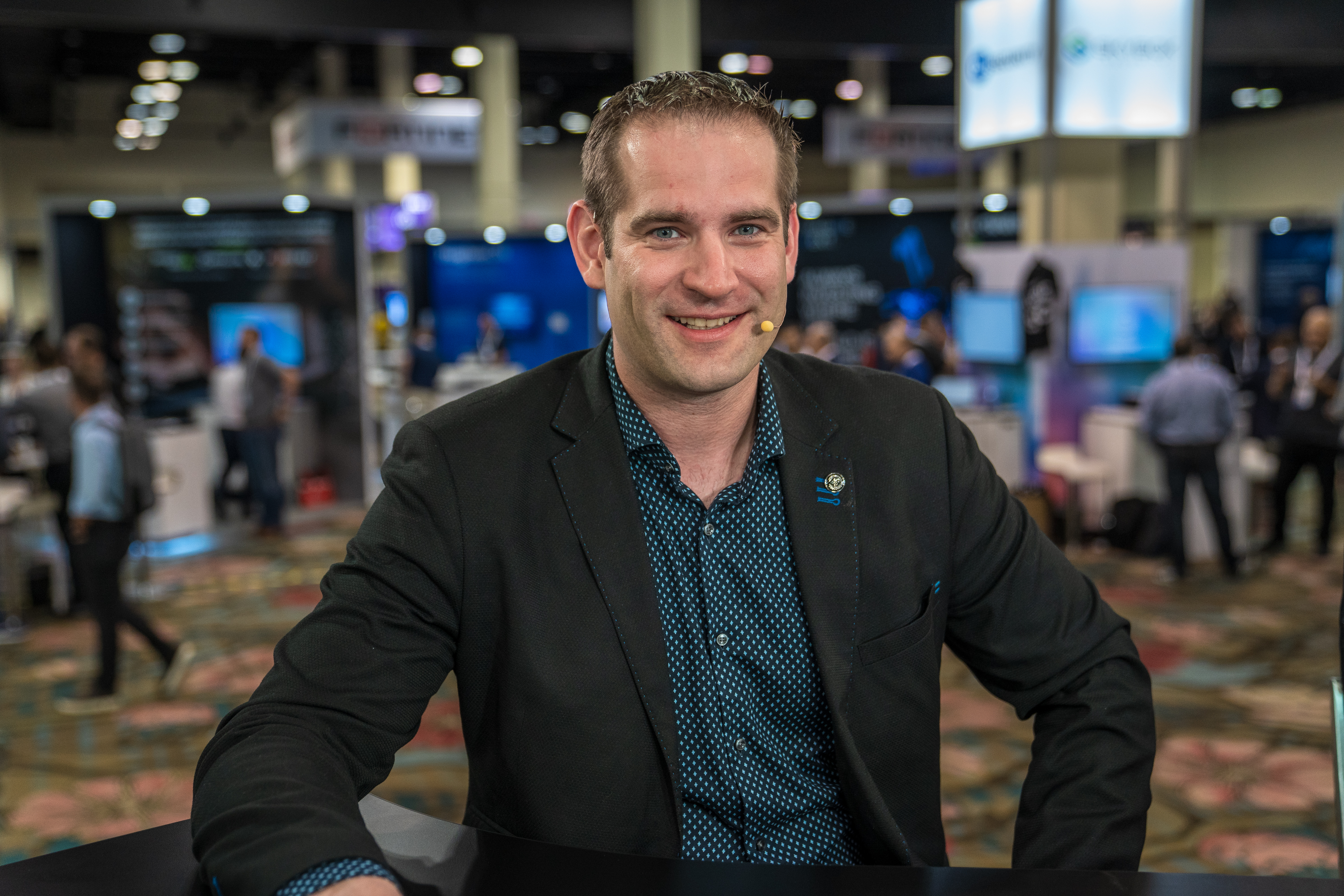 AI
AI
 AI
AI
 AI
AI
To the non-initiated, cybersecurity updates sound like the plotline to a crime thriller: Swarms of intelligent nanobots descending on an unprotected ecosystem and wiping it out in seconds. It seems a futuristic scenario, but cybercriminal gangs are adopting technologies designed to help humanity and adapting them for nefarious means.
With the introduction of advanced cyberphysical systems where machines have control over critical equipment, such as flight controls, life support systems, and autonomous cars, cybersecurity has become a battle with life and death stakes.
“There’s always this mirror image that we see with the threat landscape,” said Derek Manky (pictured), chief of security insights and global threat alliances at Fortinet Inc. “Just like machine-to-machine communication happens through [application program interfaces], protocols and so forth, threats are now able to do this as well. So, they’re able to understand their own local environment and how to adapt to that local environment and capitalize on that effort.”
Manky spoke with Peter Burris (@plburris) and Lisa Martin (@LisaMartinTV), co-hosts of theCUBE, SiliconANGLE Media’s mobile livestreaming studio, during the Fortinet Accelerate event in Orlando, Florida. They discussed Fortinet’s plan of defense against the increasingly sophisticated cyber threat landscape (see the full interview with transcript here). (* Disclosure below.)
Achieving end-to-end security requires help. Fortinet has cultivated a global partner network through its Fabric-Ready program and works closely with global law enforcement agencies, security experts, and nonprofits, such as the Mitre Adversarial Tactics, Techniques, and Common Knowledge framework and the Cyber Threat Alliance. This support system enables global monitoring of criminal activity, and the real-time threat and attack information is integrated into Fortinet’s security fabric.
“Our endgame is to make it more expensive for cybercriminals to operate,” Manky said. “So we’re doing that through working with Interpol and law enforcement, as an example. We’re also working with national computer emergency response. So ripping malicious infrastructure offline, that’s all about partnership.”
Cooperation goes beyond human partnerships at FortiGuard Labs. With 235 security experts on staff, it is the largest security operation center in the world according to Manky. But no matter how expert, humans alone could not handle the 100 billion threat events that are currently processed at the Labs each day.
“Instead of tackling the threats one on one themselves on the front lines, [our human security experts] let the machine learning models do that, and they’re training the machine learning. It’s like a parent-and-child relationship,” Manky explained, pointing out that as machines learn over time, they start to become more accurate.
“The only way they become more accurate is by our human experts literally being embedded with these machines and training them. Strength in numbers. Collaboration. It’s a very powerful thing,” he concluded.
Watch the complete video interview below, and be sure to check out more of SiliconANGLE’s and theCUBE’s coverage of the Fortinet Accelerate event. (* Disclosure: TheCUBE is a paid media partner for Fortinet Accelerate 2019. Neither Fortinet Inc., the sponsor for theCUBE’s event coverage, nor other sponsors have editorial control over content on theCUBE or SiliconANGLE.)
Support our mission to keep content open and free by engaging with theCUBE community. Join theCUBE’s Alumni Trust Network, where technology leaders connect, share intelligence and create opportunities.
Founded by tech visionaries John Furrier and Dave Vellante, SiliconANGLE Media has built a dynamic ecosystem of industry-leading digital media brands that reach 15+ million elite tech professionals. Our new proprietary theCUBE AI Video Cloud is breaking ground in audience interaction, leveraging theCUBEai.com neural network to help technology companies make data-driven decisions and stay at the forefront of industry conversations.